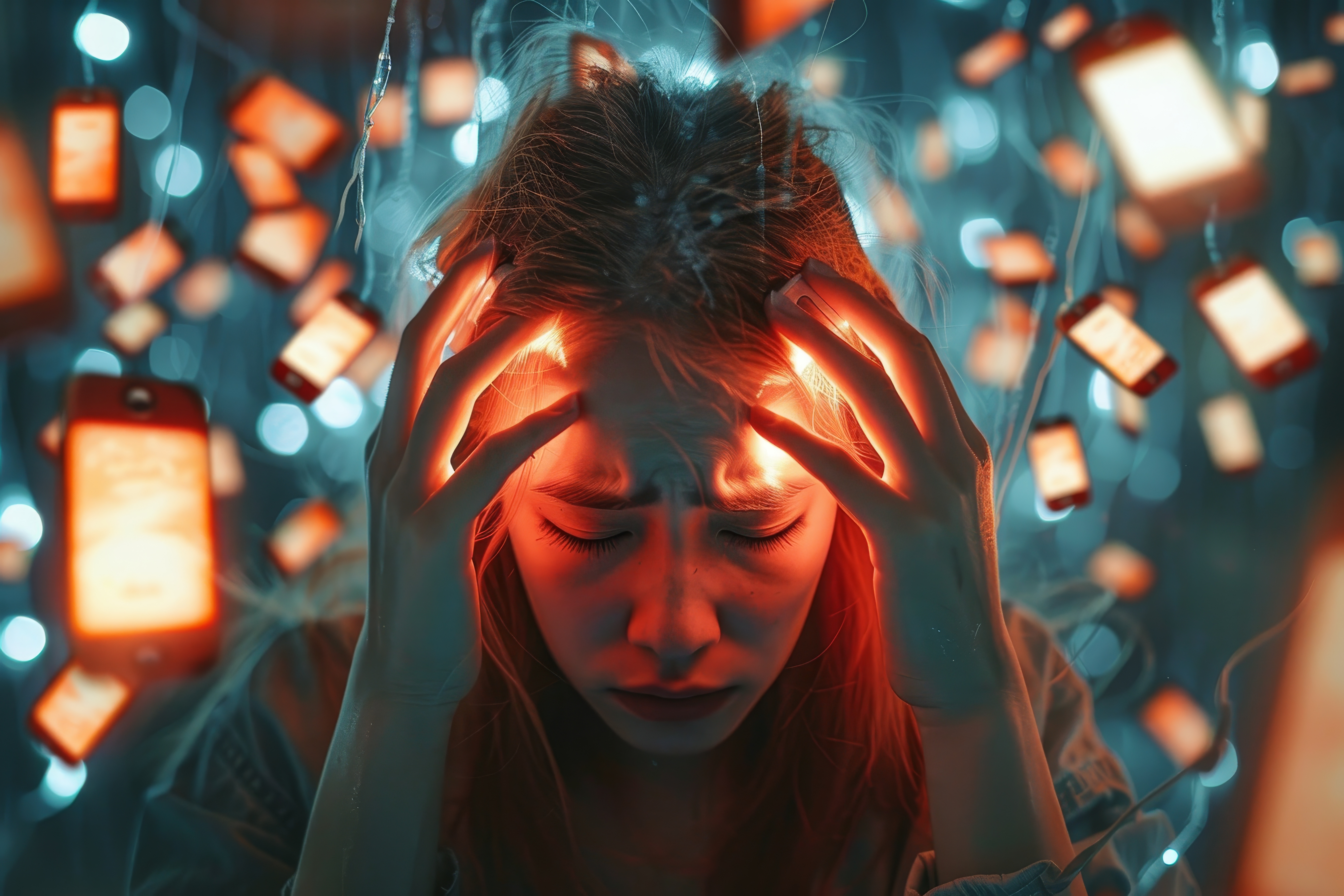Every digital interaction we have is controlled by algorithms which determine our video content and purchasing choices and decide our online social connections. The advanced computational rules deliver convenience and personalization but simultaneously change our behaviors and affect our mental health while creating what experts identify as “algorithmic anxiety.”
Understanding Algorithmic Anxiety
The stress which people experience because of algorithmic influence on their daily choices and emotional responses is known as algorithmic anxiety. Algorithms shape our behaviors by predicting our choices through their continuous operation on social media feeds and streaming recommendations and targeted advertising.
Research indicates that algorithms which curate content lead to increased feelings of inadequacy together with stress and anxiety in users. The Pew Research Center survey from 2022 revealed that 64% of social media users feel uneasy about how algorithms control their content exposure.
How Algorithms Influence Daily Decisions
The design of algorithms functions to trap and sustain user attention through predictive preference identification followed by customized content delivery. The recommendation systems of Netflix control what we watch while YouTube’s autoplay feature extends our viewing time and Amazon’s suggested purchases determine our purchasing behavior.
The Center for Humane Technology founder Tristan Harris who used to work as Google’s ethicist explains how platforms use persuasive technology principles to acquire user attention while stripping away personal control and agency.
Mental Health Consequences of Algorithmic Dependence
Users experience cycles of anxiety and depression when social media algorithms prioritize highly engaging emotionally charged content. The platform Instagram has been scientifically connected to body image concerns particularly among teenagers and young adults.
Internal Facebook research from 2021 showed that 32% of teenage girls reported feeling worse about their bodies after using Instagram when they already had negative body image feelings.
Source: The Wall Street Journal
The Science Behind Algorithmic Addiction
The optimization process of algorithms leads to dopamine release which functions as the “reward chemical” in human brains. Our brains receive small dopamine releases whenever we get notifications along with likes and personalized recommendations. The repeated exposure to these dopamine releases leads to addictive patterns of behavior and dependency formation.

According to Dr. Anna Lembke the brain’s reward pathways become disrupted when we experience continuous digital algorithm stimulation which leads to increased anxiety and reduced attention span and makes it difficult to find satisfaction in offline activities.
Harvard Medical School also emphasizes how prolonged screen time can significantly alter brain development.
Real-Life Examples of Algorithmic Influence
The “For You” page on TikTok operates through an advanced algorithm which creates an addictive personalized experience that makes users scroll endlessly.
The Wall Street Journal performed an investigation in 2021 which showed TikTok’s algorithm guides users toward specific content areas that often lead to harmful content such as eating disorders and anxiety-related videos.
Strategies to Mitigate Algorithmic Anxiety
People can use practical methods to decrease their algorithmic anxiety while taking back control of their digital experiences.
- Check your content recommendations by reviewing your follow lists and subscription feeds to maintain healthier algorithm suggestions.
- You should restrict the number of notifications and reminders that social media platforms send to decrease the amount of digital information you receive.
- Take scheduled breaks from platforms which heavily rely on algorithmic influence to allow dopamine levels in your system to recover.
- Stay informed about platform data collection methods and algorithm operations to develop intentional decisions for your digital life.
The American Psychological Association supports digital literacy and awareness programs as a solution for people to handle their interactions with algorithmically driven content.
The Future of Algorithms and Mental Health
The ongoing evolution of algorithms requires both awareness and ethical application of technology. The research community together with policymakers demand better algorithm transparency and ethical system development and user control through data privacy measures and consent practices.
The mental health advocacy group AlgorithmWatch promotes public oversight of algorithmic systems to create digital environments which support instead of harming mental health.
Final Thoughts
The growing concern of algorithmic anxiety stands as a vital issue within our modern digital society. The knowledge of algorithmic influence enables users to participate in digital platforms with both awareness and critical thinking abilities. Our growing understanding of these mechanisms enables us to fight for digital spaces that support human health instead of algorithmic metrics of engagement.
The essential skill for our digital times requires us to develop healthy and mindful ways of interacting with technology rather than avoiding it altogether.

